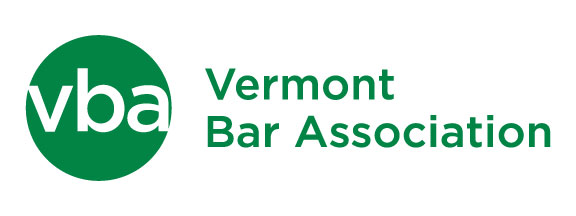07-02 A lawyer may publicize the fact that he or she is listed in a publication such as The Best Lawyers in American, so long as the lawyer makes clear that he or she is not claiming to be one of the best lawyers in American, without violating Rule 7.1.
06-05 (1) A lawyer who is representing a terminated employee in litigation against the company that formerly employed her may communicate with a manager of the company if the sole topic of discussion is whether the lawyer will represent the manager in the manager’s separate claim agains the company and so long as no information protected by V.R.E. 502 is disclosed. (2) A former manager is not a “representative” of the company as defined by V.R.E. 502, but the anit-contact provisions of Rule 4.2, as interpreted by the Vermont Supreme Court in Baisley v. Young, may restrict a lawyer who has commenced an action against the company on behalf of a former employee from discussing that action with the former manager if the former manager remains a company employee. (3) A lawyer may represent a former manager and a former employee in separate actions against the company that employed both, but if the former manager is later called as a witness by the company to testify against the former employee, such circumstance may require the lawyer to withdraw from further represenation of one or both clients depending on the circumstances existing at the time and whether each client consents to the lawyer’s continued representation of both clients.
01-02 The Committee revises its prior position on the propriety of an attorney representing a lender and a borrower in the same transaction. An attorney may represent a lender and a borrower in a real estate transaction if the attorney satisfies the requirements of Rule 1.7 of the Rules of Professional Conduct (the “Rules”) by concluding that: (a) the representation of the lender and borrower in the same transaction will not adversely affect the relationship with either client; (b) that the attorney’s judgment will not be materially limited by responsibilities to either client or to a third party; and, (c) that each client agrees to the dual representation after consultation. The consultation must occur sufficiently before the closing to allow either client to obtain separate representation if desired. The consultation must also include a discussion of the implications of the common representation and the risks and benefits of the common representation. The Committee continues to believe that it is not appropriate to represent a seller and buyer in a real estate transaction.
SYNOPSIS TWO: An attorney or law firm may form a title and escrow company to provide title and escrow services, but such services constitute law related services and the Rules apply to each attorney involved in providing these related services.
See also Advisory Ethics Opinions 90-8, 94-8, 95-03 and 95-09
01-01 An attorney may communicate with a client seeking alternative representation without consent from the attorney appointed to represent the client.
00-06 An attorney who represents a landlord may directly contact a tenant who is represented by an attorney solely for the purpose of the statutory termination of tenancy notice.
97-02 Where plaintiff’s treating physician and medical expert is also an employee of a corporate medical facility defendant, plaintiff’s attorney may communicate directly with the physician regarding the physician’s treatment of plaintiff and the physician’s expert opinion regarding issues raised in the lawsuit. This is so notwithstanding an instruction by the corporate defendant’s attorney that plaintiff’s attorney not speak with the treating physician. This rule also applies to plaintiff’s second treating physician and medical expert who is an employee and vice president of the corporate medical facility defendant.
96-07 An attorney representing a client in a matter in which an adverse party is a corporation represented by counsel may communicate with a former employee of the corporation about the matter without the consent of the corporation’s counsel.
96-06 An attorney, acting on behalf of a client, may write letters to the major, members of the city council and the city manager concerning such matters as handicapped access to city council chambers, information concerning the expenditure of city funds, and other matters, not involved in direct disputes or negotiations between the attorney’s client and the city, despite the fact the city retains a private attorney to represent the city generally.
94-03 Absent consent of an unindicted coconspirator’s attorney the attorney for a coconspirator defendant may not communicate with the unindicted co-conspirator who is represented in connection with an appeal from a conviction growing out of the conspiracy charged by the prosecution.
92-13 An attorney may not disclose to an existing client that a person has contacted the attorney regarding possible representation in a claim against the existing client. The attorney is not precluded from representing his or her existing client in a subsequent dispute with the prospective client if the attorney did not learn any secrets relevant to the lawsuit as a result of the initial contact about representation.
87-08 A lawyer who acquires unprivileged knowledge of a violation of a disciplinary rule shall report such knowledge to a tribunal or other authority empowered to investigate or act upon such a violation.
80-05 Counsel for Vermont Housing Finance Agency having direct contact with prospective mortgagors who themselves are represented by counsel

